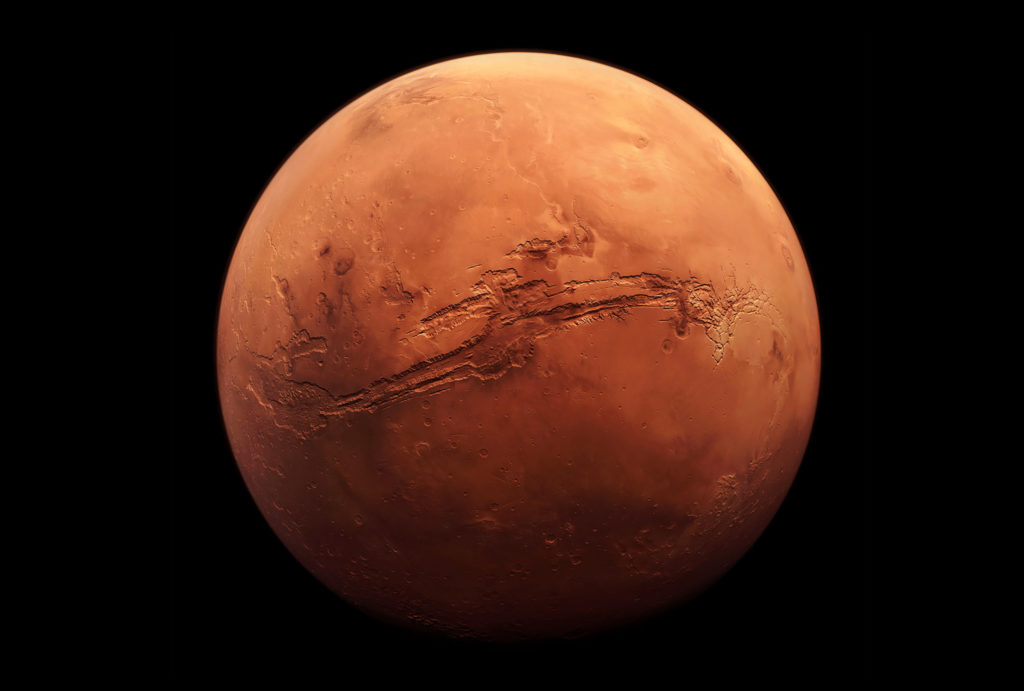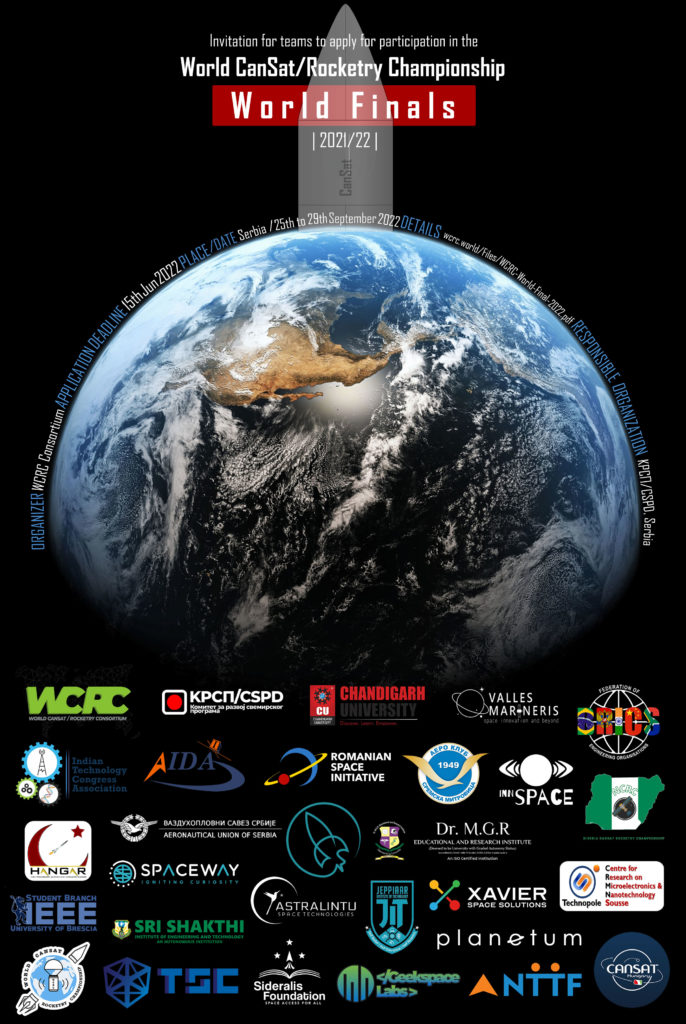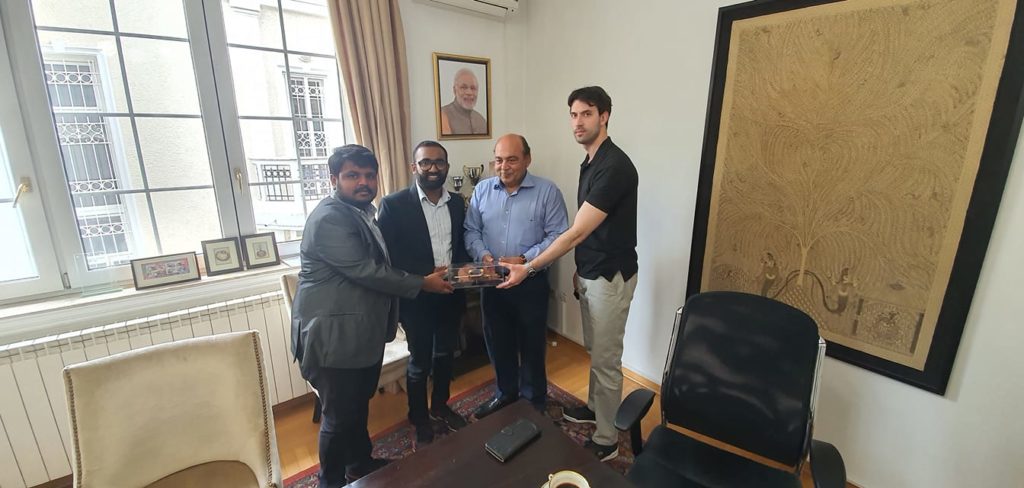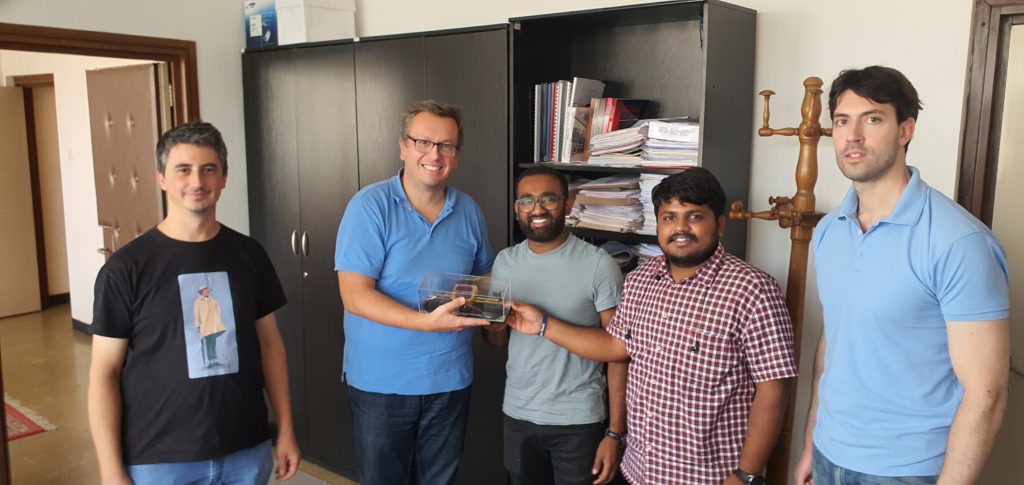REALIZED National CANSAT/ROCKETry COMPETITION WITHIN WCRC (WCRC SERBIA)
On Saturday, April 9th, 2022, the National CanSat/Rocketry competition for primary and secondary/high school students (university students are already qualified) was held at the Airport “Veliki Radinci”. The best teams from Serbia participated in the competition with the aim of the final testing of knowledge acquired during the development of CanSats and Rockets, i.e. during the preparations for the competition. As this competition was the first phase of the World CanSat/Rocketry Championship (WCRC), coming to the Airport and competing with their peers in a completely different environment and atmosphere was a necessary addition to this process to make students more prepared to continue the competition in the second phase, at the Continental level, in Italy.
Наставите са читањем REALIZED National CANSAT/ROCKETry COMPETITION WITHIN WCRC (WCRC SERBIA)ODLAGANJE REPUBLIČKOG CANSAT/RAKETNOG TAKMIČENJA ZA UČENIKE
Obaveštava se javnost da je zbog nepovoljnih vremenskih uslova predviđenih za 02.04.2022. godine republičko CanSat/Raketno takmičenje odloženo za 09.04.2022. godine.
Sve informacije koje su objavljene ranije za 02.04. važe i za 09.04.2022. godine. Ulaz je slobodan!
CALL FOR ARCHITECTS TO DESIGN HUMAN HABITAT ON MARS
WCRC World finals 2021/22
Preparations for WCRC Serbia: Students from Technical High School Bečej
WCRC SERBIA 2022/23: POZIV ĐAČKIM I STUDENTSKIM TIMOVIMA ZA UČEŠĆE
RECEPTION AT THE EMBASSY OF INDIA
OFFICIAL VISIT OF THE CSPD AND THE DELEGATION FROM INDIA TO THE TECHNICAL COLLEGE OF APPLIED SCIENCES IN ZRENJANIN
OFFICIAL VISIT FROM INDIA (UNITYSAT/WCRC TEAM)
Official visit of two Young Engineers Mr. Ashwin Shankar Reddy and Mr. Sainath Vamshi Gavani from India who are part of the Satellite Team that together with the CSPD developed and launched THREE Satellites (UNITYsat) into Space on February 28, 2021, with ISRO’s Rocket PSLV-C51 Amazonia Mission from India’s Spaceport, Sriharikota, India (https://www.isro.gov.in/Spacecraft/unitysat).
Наставите са читањем OFFICIAL VISIT FROM INDIA (UNITYSAT/WCRC TEAM)





